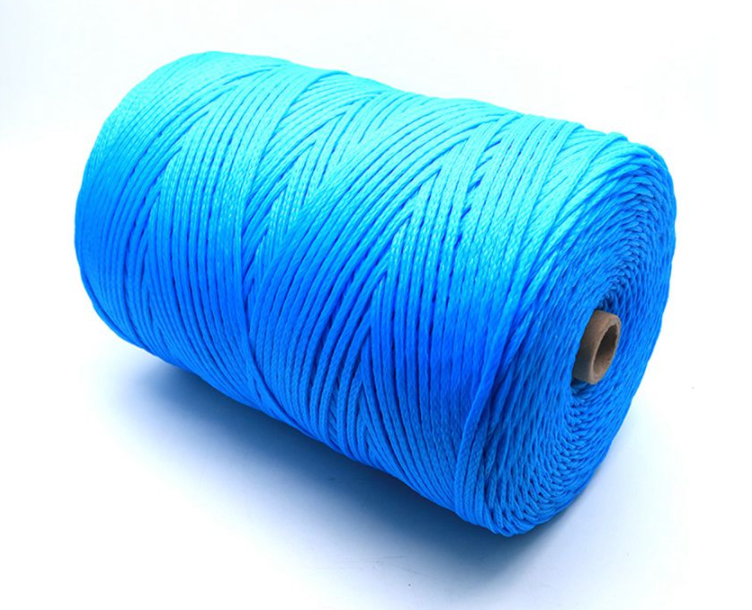
Twine is a light or strong thread made from "two or more smaller strands or yarns twisted together". The use of twine dates back to the Stone Age; hunter-gatherers made clothes and baskets. Twine is traditionally made from natural fibers such as cotton, and rope manufacturer BARON offers nylon and polyethylene varieties. We will share the various uses of the strong and durable twine.
You can use twine to guide fruit tree branches in different directions to get the desired look. This method, also known as espalier training, is traditionally used in France and Belgium; twine is used to support branches as they are dragged to the gardener's satisfaction. Fruit trees can be trained to grow against a wall or other type of upright support.

Polyethylene 8-strand braided twine
Twine is suitable for all types of traditional upholstery work. You can use it for fabrication tasks such as sewing springs and snapping hair or fibers. It is also suitable for sewing old cushions and ensuring that the padding remains intact. A beeswax coating can be applied to the twine to ensure that it can be easily passed through upholstery work.
Twine can be used as a DIY lattice. This involves securing a wooden frame with twine interwoven to support tomatoes, peppers and other crops. You can also drive wooden stakes into the ground next to the planting. The plants can then be attached at regular intervals as they grow. Tomatoes and other crops will need to be reattached periodically to ensure they are firmly anchored to the grid.

Easily knotted synthetic twine can be used to bind straw bales and bundled crops. The antistatic properties of this twine prevent the absorption of dust and moisture. However, due to the risk of serious digestive tract obstruction, you must remove the twine when preparing animal feed.
Twine is often used to separate garden plots. This involves attaching twine to stakes driven into the ground between sections of the garden. This method can also be used for sowing seeds and arranging seedlings in straight lines. Plants can be securely tied to upright stakes for added support throughout the season.
Flexible and versatile, twine is also suitable for repairing fishing nets, attaching jump covers and drying herbs.

In comparison with polyamide cords, polyester cords are softer and more flexible in wet condition. It is therefore a popular general -purpose rope in the boating industry, such as mooring lines, anchor lines etc. Polyester is one kind of synthetic material and has an excellent resistance to UV and abrasion, polyester is unaffected by water. If you need to buy them, please contact BARON today.